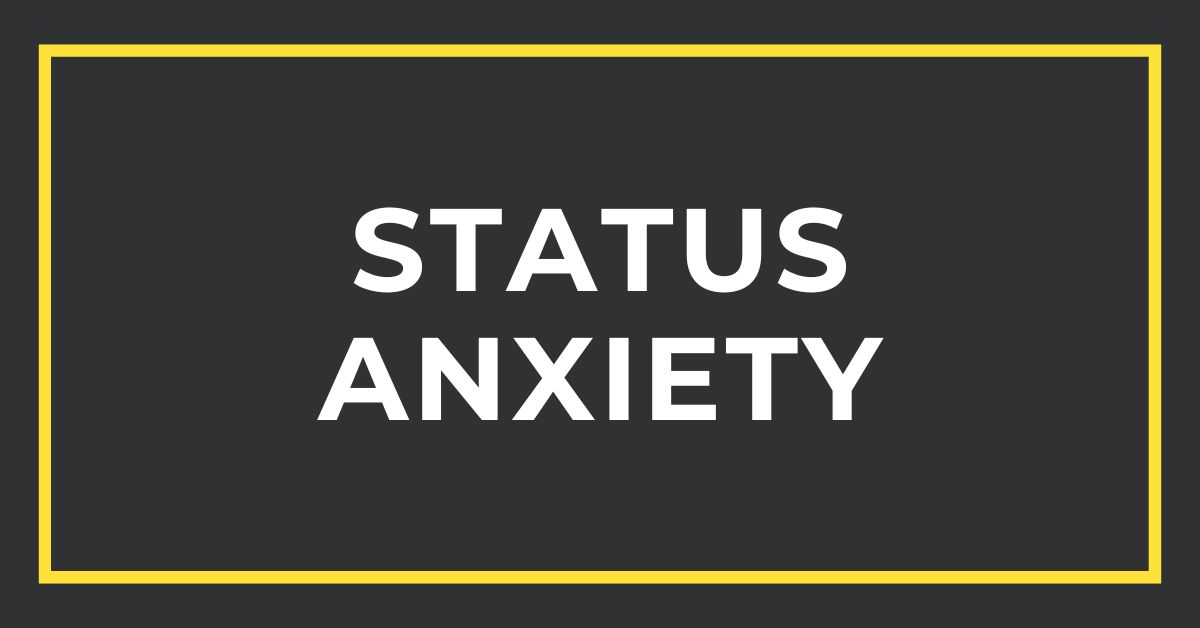Status Anxiety
Table of Contents

Meritocracies, no matter how fair, present a fundamental problem: Where you are in life is, to some degree, under your control. Therefore, whatever you lack in life is somehow “your fault.”
This responsibility comes with a great deal of pain. The pain of this is particularly sharp today, when nearly everyone has unrealistic expectations of perfection and greatness.
Social status, more than money, is the driving carrot of contemporary capitalism. As social inequality increases, so does social status anxiety.
What is Status Anxiety?
Status Anxiety is the insecurity and fear you feel about your social status. Common symptoms are feeling inadequate, feeling like you’re being judged or feeling like a failure compared to your peers.
Air Rage: A Sign of Growing Status Anxiety
Take a minor example: “air rage” — road rage, but on a plane — has increased along with social inequality. But there’s more to it than that: Air rage is more likely on flights with a first class section and far more likely when coach has to walk through it to get to their seats.
Americans, at least, don’t like being reminded of social inequality.
Fortunately, we have an easy cure for our own status anxiety: Personal achievement of clearly defined goals. The need for achievement of goals hard-baked into the human brain, part of Abraham Maslow’s hierarchy of needs. Conversely, setbacks make us feel status anxiety. We respond either by overcoming challenges, excelling in other areas of life or attributing our failures to outside forces.
The more clearly defined one’s purpose, the less status anxiety one will feel.
Focusing on Goals Alleviates Status Anxiety

Knowing clearly what you want allows you to pursue it, and avoid the distractions. Most people chase status, but are unaware of what it is they’re really looking for. When we are aware of the role of status anxiety in our lives, we can step off the treadmill a bit to pursue higher goals, such as philosophical or spiritual enlightenment, to say nothing of more quotidian pursuits such as family life, friendships, and hobbies.
Why are you here on earth? And what can you realistically expect from life when consciously directed towards that purpose? Most people have never considered these questions seriously. But knowing the answer to both can provide true insight and self-awareness.
If nothing else, when we have a self-aware purpose, we are aiming at the correct target. And if we keep missing, we can get better, find a new target or be satisfied with less.
For more on this subject, read Alain de Botton’s book Status Anxiety.
Be Yourself Quotes: Confidence, Acceptance, and Owning Who You Are
To be yourself is no small task. It takes clarity, courage, and the willingness to face who you really are, not just who you wish to be. These quotes are…